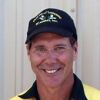There comes a time when you may want to — or need to — find out what you’re made of when there are real consequences for failure. While we can evaluate ourselves in various ways, I find that many “testing” situations don’t really tell you what you can do under stress. Likewise, many training scenarios are too sterile and controlled to allow for proper, “full-on” testing.
For me, a true test of performance involves five components:
1.) Scoring that is as objective as possible
2.) A reward that has real meaning to the person being tested
3.) Consequences of perceived failure commensurate with reward
4.) A worthy challenge
5.) Worthy opponent(s)
One of the surest ways I know to test myself and my own performance is to compete. After 33 years of competing, you’d think I have a pretty good handle on what I can do. But this year held some surprises for me.
The USPSA Handgun Nationals
The USPSA Handgun Nationals was held in St. George (Utah) and was comprised of two National Championships held back to back. The Limited Match was held first as a separate match to help develop the world shoot teams that will represent the United States at the World Championships next year. The Open and Limited 10 Nationals was held next.
Competitive shooting — especially in world-class events — is one of the best ways to find out about yourself, your equipment, your state of mind, and your mental and physical preparedness. It does things to you that are almost impossible to replicate in a training environment. In-house competition or smaller events simply don’t have the stress load of big events (but they are a great place to start).
This year, I was in the “super squad” with all the best shooters. Now, I have been on this squad numerous times in the past, but I have not been on it for a few years because I was busy mentoring my pro-team shooters and shot with them in their squads.
I went into this match thinking I would do pretty well. I had set my goals and they meant a lot to me. Yet, for all three days, I don’t think I settled down enough to really shoot as well as I know I can. We had some awesome shooters on the squad: Rob Leatham, Nils Jonasson, Dave Sevigny, Bob Vogel, members of the Army Marksmanship Unit, and a bunch of other great shooters.
Still, everyone was making mistakes like we had just learned how to shoot.
This was a tough set of matches with hard shots and numerous chances to screw up royally. But it wasn’t until I returned home that I realized that I had just been tested — really tested! — in a way that I hadn’t been in years.
I was not prepared for the level of competition I saw in this squad. Instead of staying calm and focused, I found myself constantly trying to force the speed and making too many mistakes. And I wasn’t alone! Everyone in the squad was doing the same thing from time to time.
I found myself letting the conscious mind creep into my shooting, making sure of things that I normally do automatically and thereby slowing me down. I found myself missing steel targets and having to re-engage them because I was trying to hammer them down. Coming in too fast on movement from position to position, shooting bad shots instead of really focusing on hitting well. The pressure I put on myself to perform was something I had not acknowledged until it was too late to recover.
Although I did fairly well in both matches, I failed to perform as I had wanted to — and I wouldn’t trade the experience for anything!
I found my limits. Mentally, physically, and emotionally, I found out where I was strong and where I needed improvement.
I found out that my glasses prescription — which I thought worked well enough in the past — was not sufficient for the tasks and the speed I needed to process the inputs. I found that I was mentally and emotionally over-aroused and really needed to be shooting against this level of competition on a far more regular basis to acclimate to it. I found that I needed to make some minor changes on the gun in order to shoot it more efficiently.
While success builds confidence, failure can be used to motivate one to prepare even harder.
Instead of worrying about developing a “training scar,” I perceive failure as an opportunity to examine my weaknesses and mistakes objectively and then set about correcting them systematically. Instead of making excuses and rationalizing errors, I see what I need to improve upon. I can then create a training plan to deal with the problem areas.
The Test of Self
A true test of self will tax your will and your skill. It will test your courage, discipline, and judgment. It will try your ability to remain in the present and perform at the subconscious level when your conscious mind is trying to take over and control things.
And while competitive shooting may not be for you, I would encourage everyone to find something that you can participate in that matters a lot to you and that takes a lot of personal courage to go out there and risk your ego, test your courage and see what you are made of.
By accepting these tests and the judgment of self that follows, if you really take them seriously, you will find yourself wanting to improve yourself and taking steps to move forward. Ultimately, if you constantly work on improving your performance, you will be better prepared to deal with the tests that life throws at you.
And that, my friends, is why we test ourselves.


